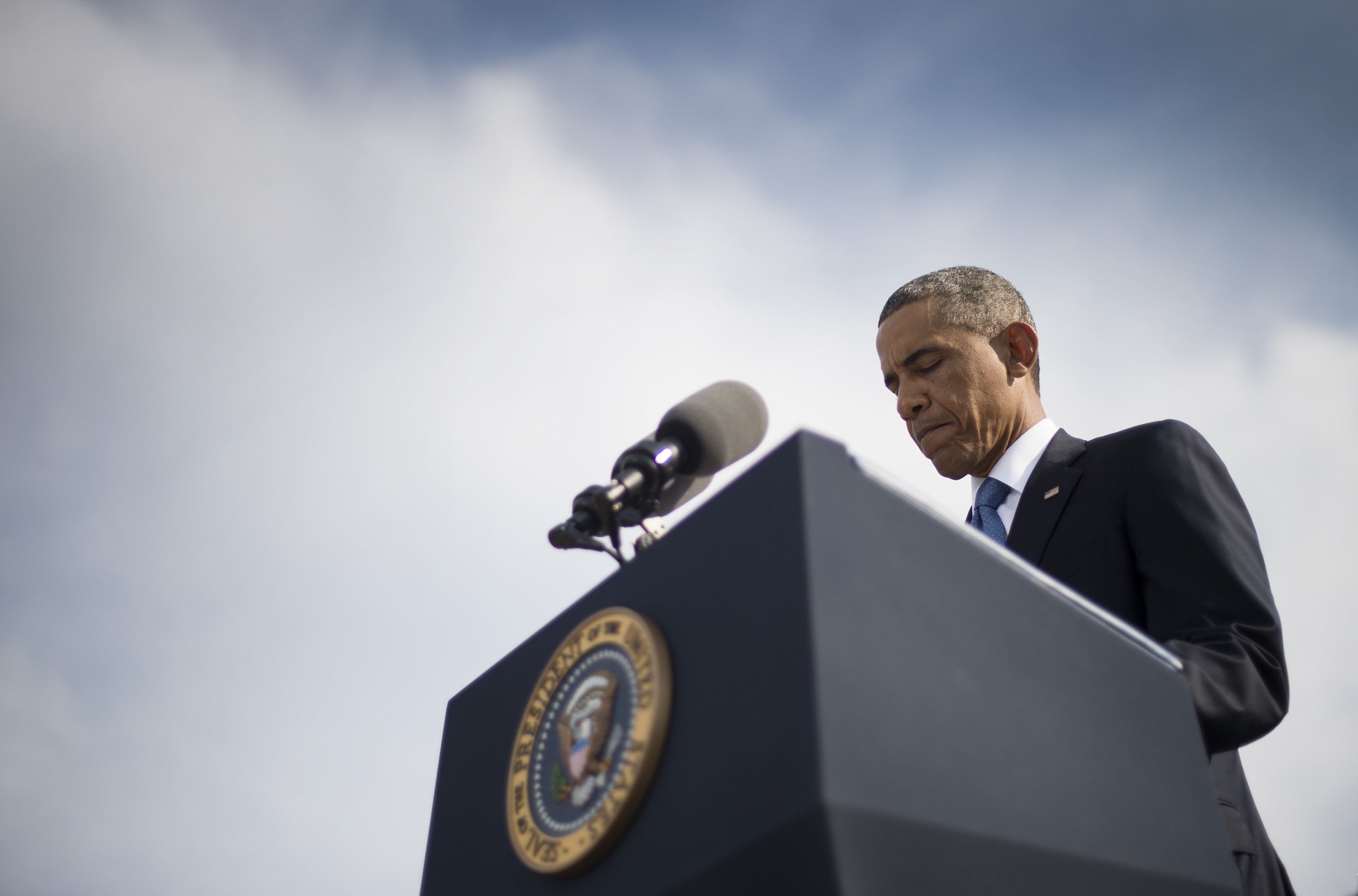
In his address to the nation last week, President Obama made a compelling case for a concerted effort to destroy the Islamic State in the Levant (ISIL), a terrorist group that has spread chaos and bloodshed across Syria and Iraq. But even as the Administration has acknowledged that taking the offensive against ISIL amounts to war, it has paradoxically taken the position that Congressional approval—while desirable—is not required.
The Constitution says otherwise.
The President has broad authority as commander in chief to defend the nation, but that authority is not without limit. It does not extend to situations like the present where the Administration has acknowledged that ISIL does not pose an immediate threat to our homeland. As one former constitutional law professor and then-Senator named Barrack Obama told an interviewer in 2007, “the President does not have power under the Constitution to unilaterally authorize a military attack in a situation that does not involve stopping an actual or imminent threat to the nation.”
The Administration has asserted that it has the requisite authority to act based on the 2001 Authorization to Use Military Force (AUMF) passed in the days immediately following September 11th—this reasoning is tenuous at best.
The 2001 AUMF authorized military force against those who “planned, authorized, committed or aided” the September 11th attacks. The logic connecting this vote to ISIL stretches an already thin reed past its breaking point. ISIL did not exist in 2001 and has been formally disavowed by al Qaeda, both because of the barbarity of its tactics and for a set of aims that is distinct from those of al Qaeda’s leadership. The al Qaeda affiliate in Syria, Jabhat al-Nusra, is more likely to fight against than alongside ISIL, and al Qaeda has rejected both its declaration of a caliphate and its would-be caliph, Abu Bakr al-Baghdadi.
Although the Administration makes a colorable claim that ISIL’s prior al Qaeda iteration and common desire to attack the west should be sufficient to bring it within the AUMF, the real question is not whether an ingenious lawyer can make the argument—that can always be done—but whether such an interpretation is consistent with a Constitution that vests the power to declare war in the Congress. Having said the military campaign against ISIL will take years and amounts to war, surely the separation of powers principles behind the declaration clause preclude executive reliance on an old authorization focused on a different enemy in a different land at a very different time.
The President’s reluctance to seek a Congressional authorization is understandable. Even in matters of national security, the dysfunction of Congress and the determination of some Republicans to foil the President at every turn have made Congressional approval a dicey proposition. This is true even here, where the nation is broadly united on the need to act against ISIL and supportive of the plan the President has put forward.
Nevertheless, there is a path that will provide the President the authority to act, permits Congress to assert its constitutional prerogative in the matter of war and peace, and will allow us to turn the page on the post 9/11 era so that we can focus on today’s threats—and tomorrow’s. It is a course the President invited us to take more than a year ago at the National Defense University when he pledged to work with Congress “to refine, and ultimately repeal, the [2001] AUMF’s mandate.”
The House and Senate should quickly take up a tailored and narrow authorization for the use of force in Iraq and Syria. Such an authorization should specify the enemy, declare that we are not authorizing the large-scale deployment of troops to fight in, or occupy either country, and contain an 18-month sunset clause so that Congress can insist on its oversight role. In doing so, Congress should also immediately repeal the 2002 resolution authorizing the use of force against Iraq, and provide the same 18-month sunset for the 2001 AUMF, to harmonize the legal authority we provide to wage war against any foe and to ensure that no future President can use it as a basis for unilateral action. I plan on introducing an authorization bill this week to accomplish these limited goals.
In matters of war, Congress is not some suitor that must be asked by the President to dance. Requested or not, Congress must exercise its responsibility to decide whether to send the nation’s sons and daughters to war. We should not go to war—let alone adjourn—without a vote.
Rep. Adam Schiff (D-Calif.) is a Member of the House Permanent Select Committee on Intelligence and author of legislation to sunset the post-9/11 authorization for use of military force.
More Must-Reads from TIME
- Donald Trump Is TIME's 2024 Person of the Year
- Why We Chose Trump as Person of the Year
- Is Intermittent Fasting Good or Bad for You?
- The 100 Must-Read Books of 2024
- The 20 Best Christmas TV Episodes
- Column: If Optimism Feels Ridiculous Now, Try Hope
- The Future of Climate Action Is Trade Policy
- Merle Bombardieri Is Helping People Make the Baby Decision
Contact us at letters@time.com